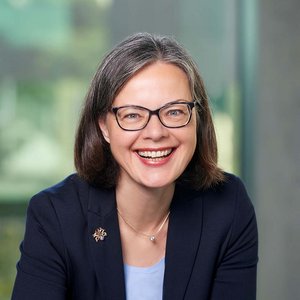Auditing
You will acquire knowledge of the purpose of legal audits and the ability to analyze financial statements and recognize and use accounting principles in a targeted manner.
Using practical case studies, you will be able to plan, conduct, and document audits of annual and consolidated financial statements. In particular, you will develop audit strategies based on your risk assessments, determine the necessary audit procedures, and be able to perform them.
Career prospects
It makes sense to take this option if you are pursuing a career in the following career fields:
- Auditing
- Finance and accounting
- Controlling
![[Translate to English:] Wirtschaftsprüfung [Translate to English:] Wirtschaftsprüfung](/fileadmin/Wirtschaft/Studiengaenge/BA_BWL_VZ/img/optionen/Wirtschaftspruefung_2_1_.jpg)
An interview with your lecturer, Professor Dr. Caroline Flick
What was the defining moment in your life when you knew which path you were going to take?
The internships during my studies at auditing companies were the most exciting – more exciting than in the controlling department at Lorenz Bahlsen and in sales at a wine wholesaler in the US, especially the first two internships in the auditing departments of large wineries and wine cellars. This was because these were always combined with tours of the facilities, and the various assignments gave me the opportunity to get to know several operations and different areas of the company. A later internship in bank auditing (financial services at Coopers & Lybrand) led to the start of my career at the (newly merged) PwC Wirtschaftsprüfungsgesellschaft.
What do you find exciting about auditing?
The profession of auditor is characterized by variety and versatility –there are always new laws and requirements, new clients, new business models that need to be understood, different approaches, etc. For auditors as well as for students, it is important to be open to new things, to continuously be willing to familiarize oneself with new topics, and to keep an eye on as many things as possible without losing sight of the big picture.
What do you expect from your students?
I expect students to be willing and eager to learn on their own (this includes going to the library and reading books and articles), to be interested in discussion (there is rarely one single right answer or one single right way), and to communicate openly in general. This also includes the combining of theory and practice by incorporating practical lectures and field trips (which will hopefully be possible again post-covid).
